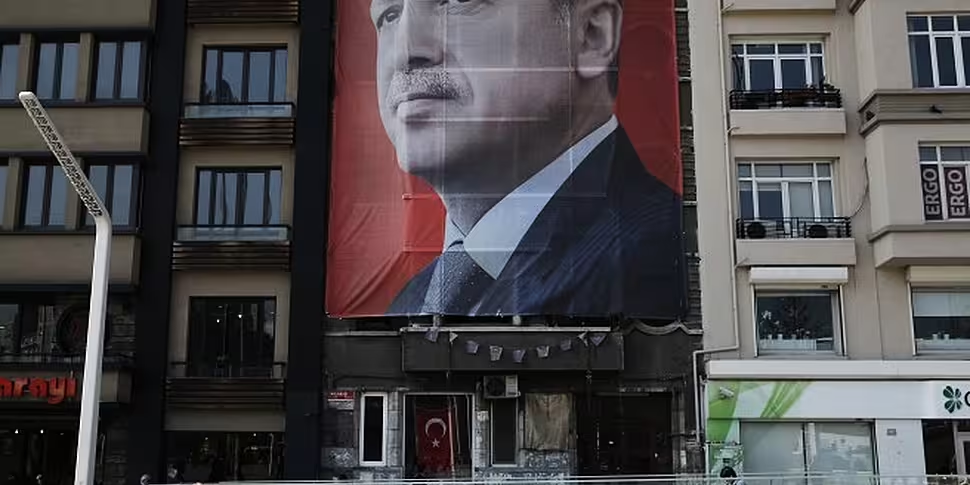Voters in Turkey are taking to the polls today to decide on a host of constitutional changes that could hand the country’s president more power than any other leader since 1946.
The referendum comes six months after a military coup failed to unseat President Recep Tayyip Erdogan on July 15th 2016.
The government reacted to the attempt by declaring a state of emergency and dismissing more than 100,000 civil servants for alleged ties to the revolt.
Ankara has blamed US-based cleric Fethullah Gulen for the coup – although he has denied any involvement.
The country is also fighting its very-own “war on terror” – although the conflict is focused on Kurdish rebels, the 'Gulenist' movement and ISIS.
European Union
Relations between the EU and Turkey have also sharply deteriorated since the failed coup.
Under the terms of a March 2016 deal between the two - agreed in an effort to curb the flow of migrants into Europe - Turkish nationals were to be granted access to the Schengen passport-free zone by June of last year.
Turkey has repeatedly warned that it could pull out of the agreement in recent months - with the country’s foreign minister insisting as recently as Friday that it could suspend or re-evaluate all agreements unless the promised visa-free travel is forthcoming.
Brussels has refused to provide the access unless Ankara agrees to modify its broad anti-terrorism laws.
While the deal was supposed to “re-energise” Turkey’s bid to join the EU, President Erdogan has warned that he may hold a referendum on whether to cancel the talks.
Nazi insults
Relations deteriorated even further after the German and Dutch governments banned referendum campaign rallies within their borders on security grounds.
There are huge numbers of Turkish people living in both countries and President Erdogan is hopeful their votes will help to sway the referendum result.
After the planned rallies were blocked he repeatedly accused the German and Dutch governments of “acting like Nazis.”
"You can stop our foreign minister's plane all you want, let's see how your (diplomatic) planes will come to Turkey from now on," he told a rally in Istanbul.
"They do not know politics or international diplomacy,” he added. “These Nazi remnants, they are fascists."
Victory in today’s vote would strengthen his domestic position in his dealings with the bloc.
Referendum campaign
The ‘Yes’ campaign is championed by the president’s conservative AKP party along with the MHP – a small ultra-nationalist party.
The official opposition - the Republican People’s Party - are supporting a No vote, along with a range of smaller groups.
Campaigning ahead of the referendum has been labelled “anything but fair” after Mr Erdogan’s crackdown in response to the failed coup.
In addition to sacking thousands of civil servants, the crackdown has seen journalists and opposition leaders jailed as well as increased government control over the media.
According to the Washington Post, Turkey now has more imprisoned journalists per head than any other country in the world.
‘No’ campaigners have claimed they are facing a campaign of intimidation and harassment with the ‘Yes’ campaign visibly dominant on the streets.
There are also rising concerns about the potential for fraud at the ballot box.
The latest polls have suggested that the Yes side currently holds a majority of just over 51%.
The outcome
If the referendum is passed it will change the presidency from a largely ceremonial role to a nearly all-powerful position as head of government, head of state and head of the ruling party.
The package contains 18 measures that would revise or repeal 76 articles of the constitution.
They would essentially jeopardise legislative and judicial independence and institute a one-man system in the office of the president.
The office of the prime minister would disappear and be subsumed into the office of the president – supported by vice-presidents.
The president’s office would have the power to:
- Appoint cabinet ministers without requiring a confidence vote from parliament.
- Issue decrees on political, social, and economic issues that would carry the force of law.
- Dissolve the Parliament - known as the National Assembly.
- Declare states of emergency.
- Propose budgets.
- Appoint 18 of the 28 top-ranking members of the judiciary.
A twist to the new laws would also open the way for Mr Erdogan to significantly extend his tenure as president.
The new system would see Parliament elected every five years through general elections held in tandem with presidential elections.
Since it would come into force in 2019 - the president has the opportunity to stay in power until 2029.
However, should parliament take a decision to call a snap general election, the president would be offered an opportunity to secure a third term – which could potentially keep him in power until 2034.
No-win situation
Commentators have voiced their concern that whatever the outcome of the vote, Turkey is facing a “lose-lose” situation.
If he loses the referendum, the president will likely call for early elections – which will likely see a continuation of his crack-down on opposition voices and drive to shore up support for the AKP.
Speaking on Thursday, one of the president’s chief advisers also suggested a second referendum could be held if voters reject the package on offer.









